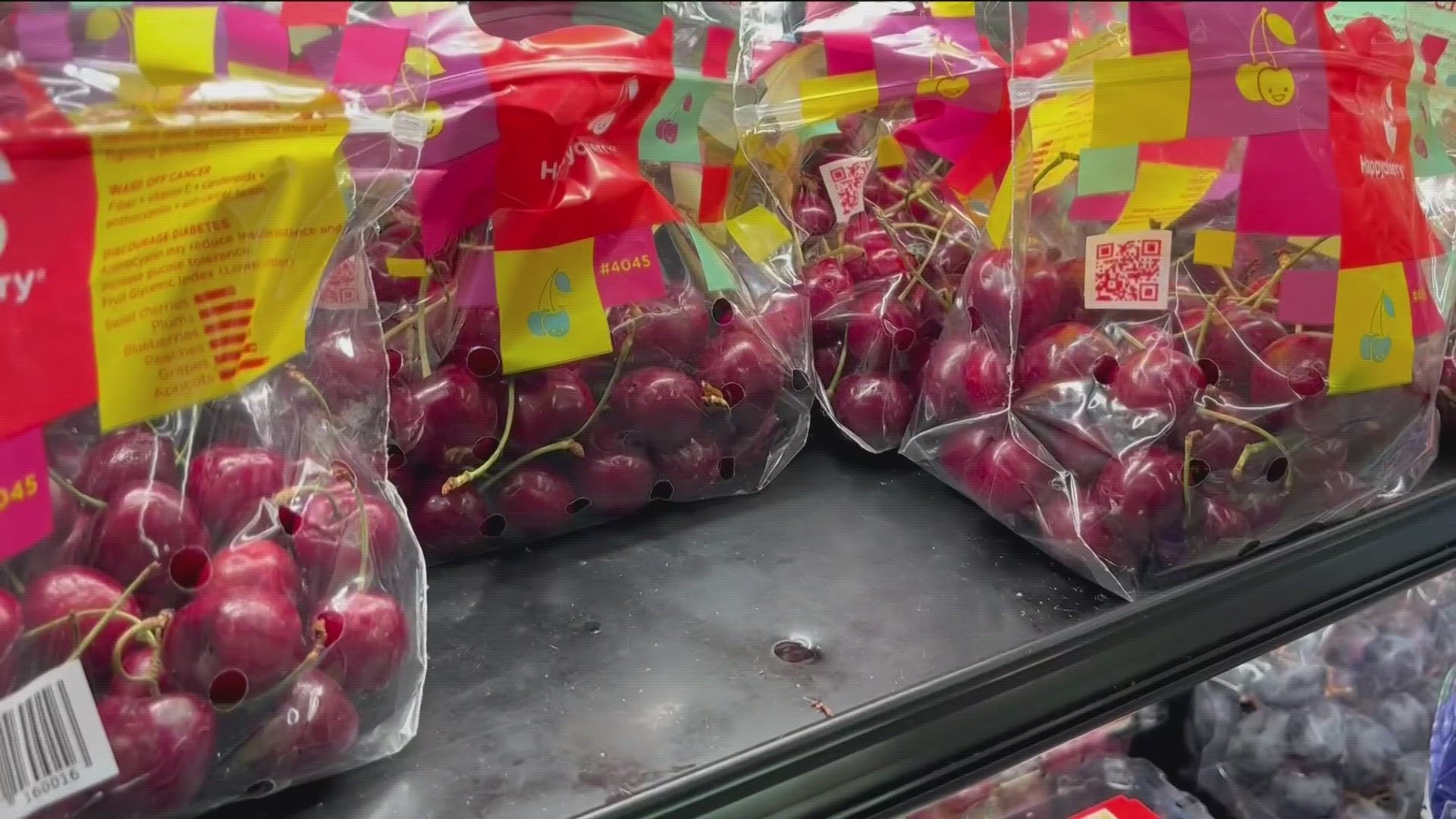SAN DIEGO — A recent study came out about the levels of harmful chemicals in practically everything we eat.
CBS 8’s Neda Iranpour spoke with a local researcher who shared her shocking findings about plastic.
According to the latest Consumer Reports, the level of a chemical known as phthalates is so common in our food that it might as well be an ingredient.
But you won’t usually find the word phthalates on a list of ingredients.
According to a local researcher, Kara Wiggin, those who make plastic products don’t have to disclose what they use to make all of it. Wiggin hopes to change that as she advocates for more transparency.
“We have this chemical burden in our food that humans may not know we are exposed to every day,” said the Scripps Institution of Oceanography researcher Wiggin who focuses on plastics.
“It’s been a fascinating and frustrating study,” said Wiggin. But despite the frustrations, the study is finally getting the recognition she believes it deserves. Wiggin recently went to Dubai with a team from UC San Diego to speak on the topic at the UN Climate Change Conference, as plastic in our environment gains recognition for all the wrong reasons.
“They are toxic we don’t even really know how toxic they truly are,” Wiggin said of phthalates.
“These (phthalates) are plasticizers which are chemicals that are put into plastic to make it more flexible. That plastic is often what our food products are wrapped in.”
Wiggin said the plasticizers help make plastic bendy and flexible. That includes things like yogurt, coffee creamer, and fruits and veggies wrapped in plastic.
“These chemicals are not molecularly bound to the plastic which means they’re not attached to the molecular structure that makes up plastic which means they can just free float,” Wiggin said.
The latest Consumer Report found there are phthalates in most packaged foods.
There is a bit of good news, said Wiggin. "Our body can process and metabolize and get rid of it fast, some studies say even as fast as two days."
But, the not-so-good news is we’re exposed every day in nearly all we do so our bodies don’t have the chance to clear plasticizers out of the system.
And now studies show they hurt our health.
"What we know for sure is they’re decreasing male fertility over time, especially when exposed your entire life.”
Wiggin points out, that it’s especially important to reduce exposure to babies since they’re most sensitive to reproductive changes.
The U.S. is phasing out phthalates from children’s toys but Wiggin said more is needed.
"Legislation around the world needs to ban them or at least phase them down,” said Wiggin.
Plasticizers are not just in food, they’re in our beauty products too, and used in bottles for things like lotion, makeup, and shampoo.
Researchers are working on alternatives to plasticizers.
In the meantime, you may want to consider buying in bulk or from farmers' markets and try to limit your consumption of packaged foods.
To read more of the studies that CBS 8 reviewed, click on the following links:

